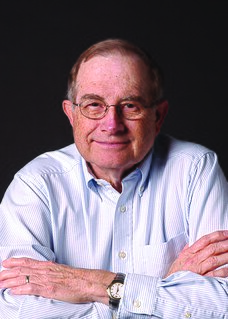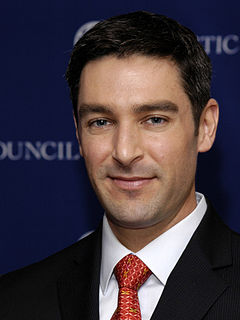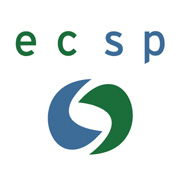Nanotechnology is manipulation of matter on an atomic, molecular, and supramolecular scale. The earliest, widespread description of nanotechnology referred to the particular technological goal of precisely manipulating atoms and molecules for fabrication of macroscale products, also now referred to as molecular nanotechnology. A more generalized description of nanotechnology was subsequently established by the National Nanotechnology Initiative, which defined nanotechnology as the manipulation of matter with at least one dimension sized from 1 to 100 nanometers. This definition reflects the fact that quantum mechanical effects are important at this quantum-realm scale, and so the definition shifted from a particular technological goal to a research category inclusive of all types of research and technologies that deal with the special properties of matter which occur below the given size threshold. It is therefore common to see the plural form "nanotechnologies" as well as "nanoscale technologies" to refer to the broad range of research and applications whose common trait is size.

The Princeton School of Public and International Affairs is a professional public policy school at Princeton University. The school provides an array of comprehensive coursework in the fields of international development, foreign policy, science and technology, and economics and finance through its undergraduate (AB) degrees, graduate Master of Public Affairs (MPA), Master of Public Policy (MPP), and PhD degrees. Since 2012, Cecilia Rouse has been dean of the Princeton School. The school is consistently ranked as one of the best institutions for the study of international relations and public affairs in the country and in the world. Foreign Policy ranks the Princeton School as No. 2 in the world for International Relations at the undergraduate and PhD levels, behind the Harvard Kennedy School.
The National Nanotechnology Initiative is a United States federal government program for the science, engineering, and technology research and development for nanoscale projects. "The NNI serves as the central point of communication, cooperation, and collaboration for all Federal agencies engaged in nanotechnology research, bringing together the expertise needed to advance this broad and complex field". Initiative participants state that its four goals are to
- advance a world-class nanotechnology research and development (R&D) program;
- foster the transfer of new technologies into products for commercial and public benefit;
- develop and sustain educational resources, a skilled workforce, and the supporting infrastructure and tools to advance nanotechnology; and
- support responsible development of nanotechnology.

The Woodrow Wilson International Center for Scholars, located in Washington, D.C., is a United States Presidential Memorial that was established as part of the Smithsonian Institution by an act of Congress in 1968. It is also a highly recognized think tank, ranked among the top ten in the world.

The Pew Charitable Trusts is an independent non-profit, non-governmental organization (NGO), founded in 1948.

Woodrow Wilson Awards are given out in multiple countries each year by the Woodrow Wilson International Center for Scholars of the Smithsonian Institution to individuals in both the public sphere and business who have shown an outstanding commitment to President of the United States Woodrow Wilson's dream of integrating politics, scholarship, and policy for the common good. Created in 1999 as a local Award for leadership in Washington, DC, the Awards were expanded in 2001 to recognize great leaders and thinkers throughout the world. Funding from the Awards supports additional research, scholars, and programs in Washington and the home community of the recipients.
The Pew Research Center is a nonpartisan American think tank based in Washington, D.C. It provides information on social issues, public opinion, and demographic trends shaping the United States and the world. It also conducts public opinion polling, demographic research, media content analysis, and other empirical social science research. The Pew Research Center does not take policy positions, and is a subsidiary of The Pew Charitable Trusts.

Cornelius (Neal) Francis Lane, is a U.S. physicist and Senior Fellow in Science and Technology Policy at Rice University's Baker Institute for Public Policy and Malcolm Gillis University Professor Emeritus of Physics and Astronomy Emeritus at Rice University in Houston, Texas.
Geoffrey D. Dabelko is Professor and Associate Dean at the George V. Voinovich School of Leadership and Public Affairs at Ohio University in Athens, OH. He teaches and conducts applied research in the School's Environmental Studies Program. His recent research focuses on the conflict and cooperation potential of responses to climate change and environmental peacebuilding.
Paul Lewis Joskow is an American economist and professor. He became President of the Alfred P. Sloan Foundation on January 1, 2008. He is also the Elizabeth and James Killian Professor of Economics, Emeritus at MIT. He has served on the MIT faculty since 1972. From 1994 through 1998 he was Head of the MIT Department of Economics. From 1999 through 2007 he was the Director of the MIT Center for Energy and Environmental Policy Research. Since rejoining in 2018 from his 1988-2007 term, Professor Joskow is Research Associate on the National Bureau of Economic Research (NBER).
The Joint Ocean Commission Initiative is a bipartisan, collaborative group in the United States that aims to "accelerate the pace of change that results in meaningful ocean policy reform." The Joint Initiative was established by the members of two major U.S.-based oceans commissions: the Pew Oceans Commission and the United States Commission on Ocean Policy. It was originally co-chaired by former White House Chief of Staff Leon Panetta and former Chief of Naval Operations Admiral James D. Watkins, chairs of the Pew and U.S. Ocean Commissions, respectively. Currently, the Joint Initiative is led by a Leadership Council, which is co-chaired by Christine Todd Whitman, former EPA Administrator under President George W. Bush and former governor of New Jersey, and Norman Y. Mineta, Secretary of Commerce under President Bill Clinton and Secretary of Transportation under President George W. Bush.
Howard Husock is vice president for policy research at the Manhattan Institute, where he is also director of its Social Entrepreneurship Initiative and a contributing editor to the Institute's quarterly magazine, City Journal. He is the author of the blog Philanthropy and Society on Forbes.com and author of the book Philanthropy Under Fire.
Because of the ongoing controversy on the implications of nanotechnology, there is significant debate concerning whether nanotechnology or nanotechnology-based products merit special government regulation. This mainly relates to when to assess new substances prior to their release into the market, community and environment.

Damon Wilson is an American foreign policy advisor and the current executive vice president at the Atlantic Council, a foreign and public policy think tank based in Washington, D.C. Wilson also currently serves as a senior advisor on the U.S.-Ukraine Business Council and as an International Advisory Board member at the Slovak Atlantic Commission.
The Center for Regional Change is a university-affiliated and non-partisan research center within the UC Davis College of Agricultural and Environmental Sciences. The center also hosts a Distinguished Lecture Series annually in which scholars and leaders in the field are invited to share their knowledge with the campus community.

The Environmental Change and Security Program (ECSP) is one of several programs and projects that make up the Global Resilience and Sustainability Program at the Woodrow Wilson International Center for Scholars. ECSP was founded in 1994 to study the connections among environmental, health, and population dynamics and their links to conflict, human insecurity, and foreign policy.
The 2000s have seen the beginnings of the applications of nanotechnology in commercial products, although most applications are limited to the bulk use of passive nano-materials. Examples include titanium dioxide and in sunscreen, cosmetics and some food products; silver nano-particles in food packaging, clothing, disinfectants and household appliances such as Silver Nano; carbon nano-tubes for stain-resistant textiles; and cerium oxide as a fuel catalyst. As of March 10, 2011, the Project on Emerging Nanotechnologies estimated that over 1300 manufacturer-identified nano-tech products are publicly available, with new ones hitting the market at a pace of 3–4 per week.

Andrew Maynard is an author, professor, and director of the Risk Innovation Lab at the School for the Future of Innovation in Society (SFIS) at Arizona State University (ASU). Maynard was previously the director of the University of Michigan Risk Science Center and served as Science Advisor to the Project on Emerging Nanotechnologies at the Woodrow Wilson International Center for Scholars. His work focuses on the socially responsive and responsible development of emerging and converging technologies.

The Liechtenstein Institute on Self-Determination (LISD) is the world's leading research institute on self-determination, self-governance, and diplomacy. LISD is affiliated with the Woodrow Wilson School of Public and International Affairs at Princeton University. Founded in 2000 by the Prince Hans-Adam II of Liechtenstein, the Institute aims to enhance global peace and stability through its projects, publications, and commentaries.
Vickie Sutton is a Lumbee Law professor currently on the faculty of Texas Tech University. Since 2014, Sutton has been on the Texas Task Force on Infectious Disease Preparedness and Response.









